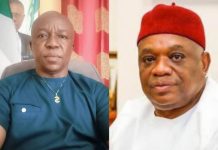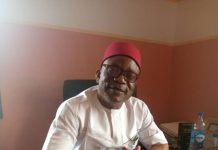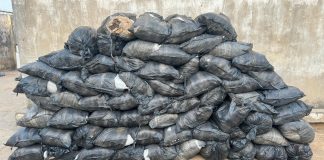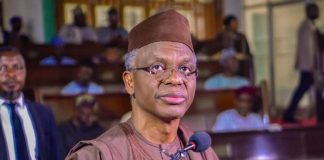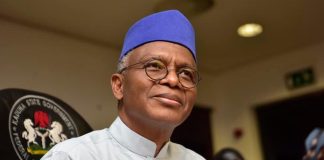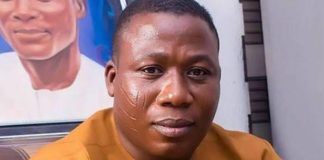🌿 Ruzu Non-Alcoholic Herbal Bitters
Ruzu Non-Alcoholic Herbal Bitters is a natural health supplement specially formulated to:
- ✅ Promote general wellness
- ✅ Detoxify the body
- ✅ Support the treatment of various ailments
Made from a powerful blend of 100% organic and medicinal herbs, Ruzu is completely alcohol-free, making it ideal for:
- 👪 All age groups
- 🌱 Health-conscious individuals
- 🌿 Anyone seeking non-alcoholic herbal remedies
Whether you're looking to boost your vitality, cleanse your system, or support healing the natural way, Ruzu Bitters offers a trusted herbal solution.
Nigeria’s debt crisis sparks outrage over corruption – Iche opin
…as activist Iche slams Tinubu government.
By Naomi Onome

Comrade Prince Saviour Iche, a human rights advocate, raises concerns about Nigeria’s growing debt and the impact of borrowing on Nigerians while advocating for accountability and action against corruption. He questions why there is a need for borrowed funds given the country’s rich resources.
On today’s trending issue of discussion, Iche opined that recovered looted funds could potentially alleviate the need for borrowing as he calls on the Economic and Financial Crimes Commission (EFCC) to pursue corruption cases with present and past politicians without bias or party immunity; the government should account for the fuel subsidy funds as well.
He further said,
“Nigeria’s debt profile has reached 160 trillion, with the Tinubu government borrowing an additional 9.3 trillion. This borrowing is a joke, as Nigeria is rich and not poor in resources that are yet unutilised.”
“If the government allows the EFCC to recover the money held by the current and former leaders, billions and trillions of dollars could be recovered. The current administration and the EFCC should be aware of this corruption, and the money that was seized ought to be put towards fixing other economic problems.”
“The government shouldn’t be biased in its fight against corruption because the masses are suffering too much. The general well-being of Nigeria is being impacted by the money that is hidden and in the hands of its leaders. It is absurd that Nigeria is taking out loans, and we are even taking out loans from nations with lesser resources than we do.”
“The money held by current SAs, former ministers, governors, and current ministers is sufficient to stop Pres. Tinubu’s borrowing from other nations. Everyone is aware that the previous administration had corrupt leaders, and a particular governor was recently told not to investigate the previous administration. In a country where law and order exist, if the said governor had been permitted to use the EFCC to investigate the previous administration, billions and trillions of dollars would have been recovered.”
“See how Yaya Bello is enjoying freedom and how people like Akpabio, Uzor Kalu, and former Edo State Governor Obaseki have been implicated in several money laundering scandals and are yet untouchable.”
“What became of the fuel subsidy and the proceeds from its elimination? Has this borrowing had a positive impact on Nigerians? Take a look at the former governor of the central bank. Is he the sole plunderer? Why is it that the government cannot also target others? Emefiele was the only one who had an estate and billions confiscated; why is that so? It is important to apprehend other people who are involved in the laundering of public funds.”
“When combating corruption, our government should not be biased. Since this money represents the sweat of the nation, the launderers should be exposed and our stolen public funds retrieved. The extreme adversity that the masses endure should not be in vain.”
“I respectfully request that President Tinubu put an end to the shame brought on by the borrowing and irreparable money laundering of both the current and former administrations. The EFCC and the current government are aware that former SAs, ministers, and governors embezzled the country’s treasury; the money launderers should be caught so that the funds can be used for the necessary purposes rather than continuing to borrow.”

